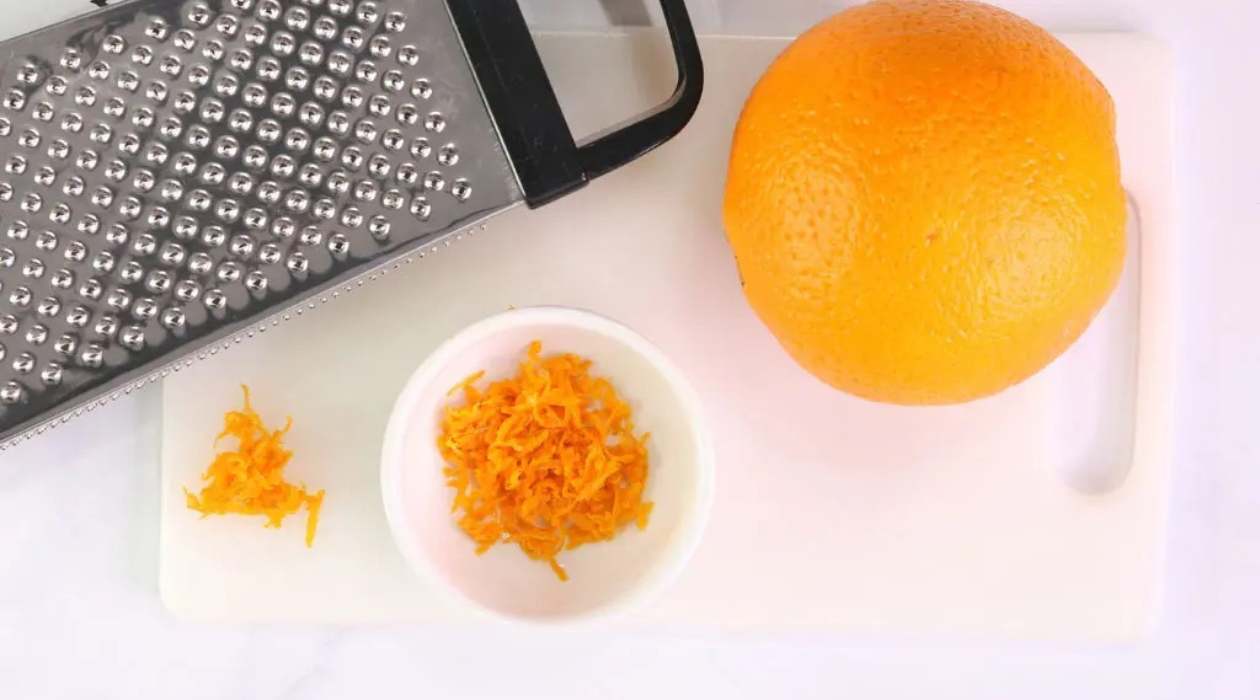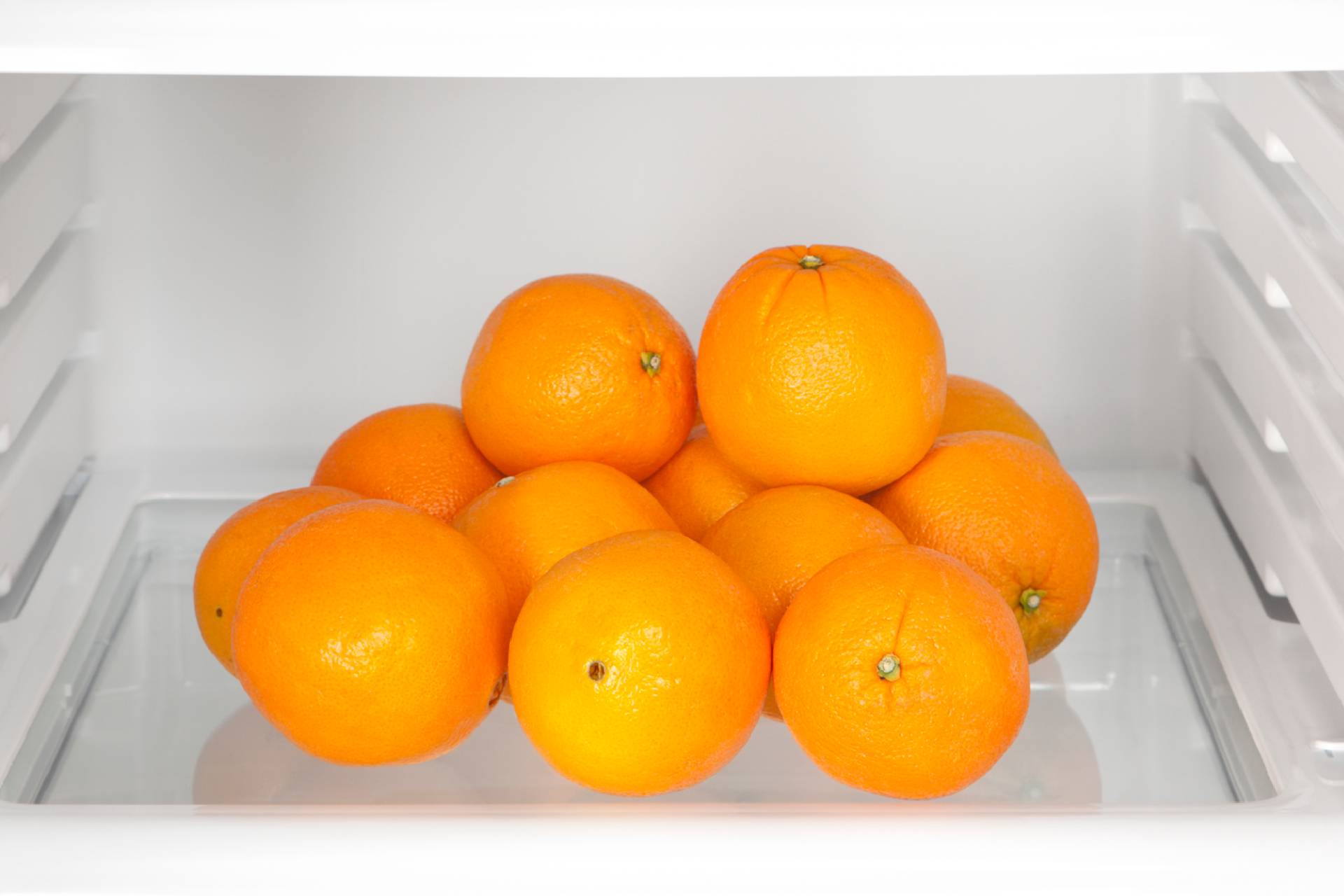

Articles
How To Store Mandarin Oranges
Modified: February 23, 2024
Learn the best methods for storing mandarin oranges in this informative articles. Keep your mandarins fresh and delicious for longer periods of time.
(Many of the links in this article redirect to a specific reviewed product. Your purchase of these products through affiliate links helps to generate commission for Storables.com, at no extra cost. Learn more)
Introduction
Mandarin oranges are a popular and delicious citrus fruit known for their sweet and refreshing flavor. Whether enjoyed on their own as a snack or used in various culinary creations, these small citrus fruits have gained popularity worldwide. However, like any perishable item, mandarin oranges need to be properly stored to maintain their taste, freshness, and nutritional value.
In this article, we will explore the various methods for storing mandarin oranges to ensure they stay fresh for as long as possible. We will discuss the importance of selecting the right mandarin oranges, proper storage at room temperature and in the refrigerator, freezing techniques, and long-term preservation methods. Additionally, we will provide some helpful tips to maintain the freshness of mandarin oranges.
By following these guidelines, you can extend the shelf life of your mandarin oranges, allowing you to enjoy their succulent flavor and numerous health benefits for a longer period.
Key Takeaways:
- Choose vibrant, firm, blemish-free mandarin oranges for optimal storage. Keep them dry, away from sunlight, and allow airflow. Regularly inspect and consume promptly for peak freshness and flavor.
- Extend mandarin oranges’ shelf life by refrigerating, freezing, canning, or dehydrating. Handle with care, avoid washing before storage, and store away from ethylene-producing fruits. Regularly inspect and consume before spoilage for best quality.
Choosing the Right Mandarin Oranges
When it comes to storing mandarin oranges, selecting the right ones is crucial. Here are some tips to help you choose the best mandarin oranges:
- Look for a vibrant color: Opt for mandarin oranges that have a bright, vibrant orange color. Avoid fruits that have green or brown spots, as they may indicate overripeness or decay.
- Feel for firmness: Gently squeeze the fruit to ensure it feels firm and not too soft or mushy. Mandarin oranges that are too soft may be overripe and prone to spoiling quickly.
- Check for blemishes: Examine the exterior for any visible blemishes, cuts, or bruises. It’s best to choose mandarin oranges that have smooth, unblemished skin, as this indicates freshness.
- Consider the size: Mandarin oranges come in different sizes, ranging from small to large. Choose the size that suits your preference and usage. Keep in mind that smaller mandarin oranges tend to have a more concentrated flavor.
- Smell the aroma: Give the fruit a gentle sniff to check for a fragrant citrus aroma. Mandarin oranges with a pleasant fragrance are often a good indicator of freshness.
By selecting high-quality mandarin oranges, you are setting the foundation for optimal storage and prolonged freshness. Remember, the condition of the fruit at the time of purchase will greatly influence its storage potential.
Properly Storing Mandarin Oranges
Proper storage is key to preserving the flavor, texture, and nutritional value of mandarin oranges. Here are some guidelines for storing mandarin oranges:
- Keep mandarin oranges dry: Moisture can cause mandarin oranges to deteriorate quickly. Make sure the surface of the fruit is dry before storing them.
- Avoid direct sunlight: Expose mandarin oranges to direct sunlight can cause them to ripen too quickly and spoil. Store them in a cool, dark place to extend their shelf life.
- Allow for proper air circulation: Mandarin oranges need adequate airflow to stay fresh. Avoid overcrowding them in a container or bag, as this can accelerate spoilage. Instead, store them in a single layer or loosely in a breathable bag or container.
- Handle with care: Mandarins have delicate skin that can easily bruise or puncture. Be gentle when handling them, as any damage can lead to quicker spoilage.
- Remove any damaged fruit: Inspect your mandarin oranges regularly and discard any fruits that show signs of decay or mold. One spoiled fruit can quickly contaminate the others.
Following these storage practices will help maintain the quality and freshness of your mandarin oranges for a longer duration. Additionally, the storage method you choose will also impact their shelf life. Let’s explore the two most common methods of storing mandarin oranges: at room temperature and in the refrigerator.
Storing Mandarin Oranges at Room Temperature
Storing mandarin oranges at room temperature is a suitable option if you plan to consume them within a few days. Here are the steps to follow:
- Select a cool spot: Find a cool area in your kitchen or pantry away from direct sunlight and heat sources. Avoid areas that are prone to temperature fluctuations.
- Leave them loose: Place the mandarin oranges in a fruit bowl or on a countertop, ensuring they are not overcrowded. This allows for proper air circulation, preventing premature spoiling.
- Monitor regularly: Check the mandarin oranges daily for any signs of spoilage, such as mold or soft spots. Remove any damaged fruits to prevent the spread of decay.
- Consume promptly: Mandarin oranges stored at room temperature will typically remain fresh for about a week or slightly longer. It’s best to consume them within this timeframe to enjoy peak flavor and quality.
Remember that the shelf life of mandarin oranges at room temperature may vary based on factors such as initial freshness, ambient temperature, and humidity levels. If you notice any signs of deterioration or if you know you won’t be able to consume them within a week, it’s best to consider refrigerating or freezing the mandarin oranges for longer storage.
Storing Mandarin Oranges in the Refrigerator
If you want to extend the shelf life of your mandarin oranges, storing them in the refrigerator is an ideal option. Here’s how to do it:
- Choose the right temperature: Set your refrigerator to a temperature between 38°F (3°C) and 42°F (6°C). This range provides an optimal environment for mandarin oranges, keeping them fresh without freezing.
- Place in a breathable container: Place the mandarin oranges in a breathable container such as a mesh bag or perforated plastic bag. This helps maintain humidity levels and allows air to circulate, preventing moisture buildup.
- Avoid overcrowding: Ensure there is enough space around each mandarin orange to facilitate proper airflow. Overcrowding can lead to faster spoilage.
- Minimize contact with other foods: Store mandarin oranges away from other strong-smelling foods, as they can absorb odors. This helps preserve their natural aroma and flavor.
- Regularly inspect and remove damaged fruit: Check the mandarin oranges periodically and remove any that show signs of decay or mold. This prevents spoilage from spreading to the rest of the fruit.
- Consume within a few weeks: When stored in the refrigerator, mandarin oranges can typically stay fresh for up to two to three weeks. However, for the best flavor and quality, it’s recommended to consume them within the first week or two.
By refrigerating mandarin oranges, you can prolong their shelf life, ensuring they remain juicy and flavorful. This method is particularly beneficial if you have a large quantity of mandarin oranges or if you prefer to consume them gradually over time.
Read more: How To Store Peeled Mandarin Oranges
Freezing Mandarin Oranges
If you have an abundance of mandarin oranges and want to preserve them for an extended period, freezing is a great option. Freezing mandarin oranges can help retain their flavor and nutritional value. Here’s a step-by-step guide to freezing mandarin oranges:
- Peel and separate the segments: Start by peeling the mandarin oranges and separating them into individual segments. This makes them easier to thaw and use later.
- Remove any excess moisture: Use a paper towel to pat dry the mandarin orange segments. Excess moisture can cause ice crystals to form, which can affect the texture of the fruit.
- Arrange on a baking sheet: Place the mandarin orange segments on a baking sheet lined with parchment paper, ensuring they are not touching each other.
- Flash-freeze: Transfer the baking sheet to the freezer and let the mandarin orange segments freeze individually for a few hours or until completely frozen. This process is known as flash-freezing and prevents the segments from clumping together.
- Transfer to an airtight container or bag: Once the mandarin orange segments are fully frozen, transfer them to an airtight container or freezer bag. Squeeze out any excess air before sealing to prevent freezer burn.
- Label and date: Label the container or bag with the contents and date of freezing. This helps you keep track of their freshness and ensures you use the oldest ones first.
- Store in the freezer: Place the container or bag in the freezer and make sure it is stored away from strong-smelling foods to avoid any flavor transfer.
- Thaw and use: When you’re ready to use the frozen mandarin oranges, simply remove the desired amount from the freezer and thaw in the refrigerator or at room temperature. They can be used in smoothies, desserts, or enjoyed as a frozen treat.
By freezing mandarin oranges, you can enjoy their bright, tangy flavor even when they are out of season. While the texture may differ slightly after freezing, the frozen segments are still delicious and versatile for use in various recipes.
Store mandarin oranges in a cool, well-ventilated area away from direct sunlight. They can also be stored in the refrigerator for up to two weeks. Avoid storing them near strong-smelling foods, as they can easily absorb odors.
Storing Mandarin Oranges for Long-Term Preservation
If you want to store mandarin oranges for an extended period beyond freezing, you can consider long-term preservation methods such as canning or dehydrating. These methods can help you enjoy the taste of mandarin oranges even when they are out of season. Let’s explore these options:
Canning:
Canning mandarin oranges involves preserving them in a sweet syrup or juice, which helps maintain their flavor and texture. Here’s how to can mandarin oranges:
- Peel and segment the mandarin oranges: Start by peeling the oranges and separating them into individual segments.
- Prepare the syrup: In a saucepan, combine water and sugar to create a light syrup. You can also add some lemon juice for flavor and to prevent browning.
- Heat the syrup: Bring the syrup to a simmer over medium heat, stirring until the sugar dissolves completely.
- Pack the jars: Place the mandarin orange segments into sanitized canning jars and pour the hot syrup over them, leaving a 1/2-inch headspace. Remove any air bubbles by gently tapping the jars.
- Seal and process: Wipe the jar rims clean, place the lids on top, and screw the bands onto the jars until fingertip-tight. Process the jars in a boiling water bath for the recommended time according to your canner’s instructions.
- Cool and store: Once the processing time is complete, remove the jars from the canner and let them cool on a towel-lined countertop. Once cool, check the seals and store the jars in a cool, dark place for long-term storage.
Dehydrating:
Dehydrating mandarin oranges involves removing the moisture from the fruit, resulting in a shelf-stable product. Here’s how to dehydrate mandarin oranges:
- Peel and slice the mandarin oranges: Peel the oranges and slice them into thin, even rounds.
- Pre-treat the slices: To prevent browning, you can pre-treat the mandarin orange slices by dipping them in a solution of water and lemon juice.
- Arrange on dehydrator trays: Lay the slices in a single layer on dehydrator trays, making sure they don’t overlap.
- Dehydrate: Set the dehydrator to the recommended temperature for fruit, typically around 135°F (57°C). Allow the mandarin orange slices to dehydrate for several hours or until they are dry and leathery.
- Cool and store: Once fully dehydrated, let the mandarin orange slices cool completely. Store them in airtight containers or sealable bags in a cool, dark place.
- Rehydrate when ready to use: When you’re ready to enjoy the dehydrated mandarin oranges, soak them in water or juice for a few minutes to rehydrate before using them in recipes or as a snack.
Both canning and dehydrating methods allow you to preserve the taste and nutritional benefits of mandarin oranges for an extended period. Choose the method that suits your preferences and storage capabilities to enjoy the delightful taste of mandarin oranges year-round.
Read more: How To Store Mandarins
Tips for Maintaining the Freshness of Mandarin Oranges
To keep your mandarin oranges fresh and flavorful for as long as possible, consider these helpful tips:
- Proper handling: Handle mandarin oranges with care to avoid bruising or damage to the skin, as this can accelerate spoilage.
- Don’t wash beforehand: Avoid washing mandarin oranges before storage, as moisture can lead to faster spoilage. Instead, rinse them just before consuming.
- Store away from ethylene-producing fruits: Ethylene is a natural gas produced by some fruits, which can cause premature ripening and spoilage of mandarin oranges. Keep them separate from ethylene-producing fruits like bananas, apples, and pears.
- Use the crisper drawer: If storing mandarin oranges in the refrigerator, place them in the crisper drawer, which helps maintain a more consistent temperature and humidity level.
- Don’t store with a plastic bag: Mandarin oranges stored in a closed, non-breathable plastic bag can retain excess moisture and promote mold growth. Instead, opt for breathable storage options like mesh bags.
- Don’t peel until ready to consume: The peel acts as a natural protective covering, so it’s best to keep it intact until you’re ready to eat the mandarin oranges. This helps maintain their freshness and prevents dryness.
- Rotate your stash: If you have a large quantity of mandarin oranges, make sure to use the older ones first to prevent spoilage and waste.
- Consider canning or freezing: If you have excess mandarin oranges and want to preserve them for the long term, consider canning or freezing them using the methods outlined earlier in this article.
- Inspect regularly: Regularly check your stored mandarin oranges for any signs of decay, mold, or soft spots. Remove any damaged fruits promptly to prevent spoilage from spreading.
- Consume before spoilage: While mandarin oranges can be stored using various methods, it’s best to consume them within a reasonable time frame to ensure the best quality and taste.
By following these tips, you can maximize the freshness and flavor of your mandarin oranges, allowing you to enjoy their delightful taste for an extended period.
Conclusion
Properly storing mandarin oranges is essential for maintaining their freshness, flavor, and nutritional value. Whether you choose to store them at room temperature, in the refrigerator, freeze them, or opt for long-term preservation methods like canning or dehydrating, there are various ways to ensure that your mandarin oranges last longer.
When selecting mandarin oranges, choose vibrant-colored fruits that feel firm and are free from blemishes or damage. Proper storage techniques include keeping them dry, protecting them from direct sunlight, allowing for airflow, and regularly inspecting and removing any damaged fruit. Storing mandarin oranges at room temperature is suitable for short-term consumption, while refrigerating them extends their shelf life. Freezing mandarin oranges is an excellent option for long-term preservation, and canning or dehydrating them allows you to enjoy their taste even when they are out of season.
To maintain the freshness of mandarin oranges, handle them with care, avoid washing them before storage, store them away from ethylene-producing fruits, and use breathable storage containers. Additionally, rotating your stash, inspecting regularly, and consuming them before spoilage are important practices to ensure their optimal quality.
By implementing these storage and freshness maintenance tips, you can extend the lifespan of your mandarin oranges and continue enjoying their sweet, tangy flavor and numerous health benefits. So go ahead and savor the delectable taste of mandarin oranges all year round!
Frequently Asked Questions about How To Store Mandarin Oranges
Was this page helpful?
At Storables.com, we guarantee accurate and reliable information. Our content, validated by Expert Board Contributors, is crafted following stringent Editorial Policies. We're committed to providing you with well-researched, expert-backed insights for all your informational needs.














0 thoughts on “How To Store Mandarin Oranges”